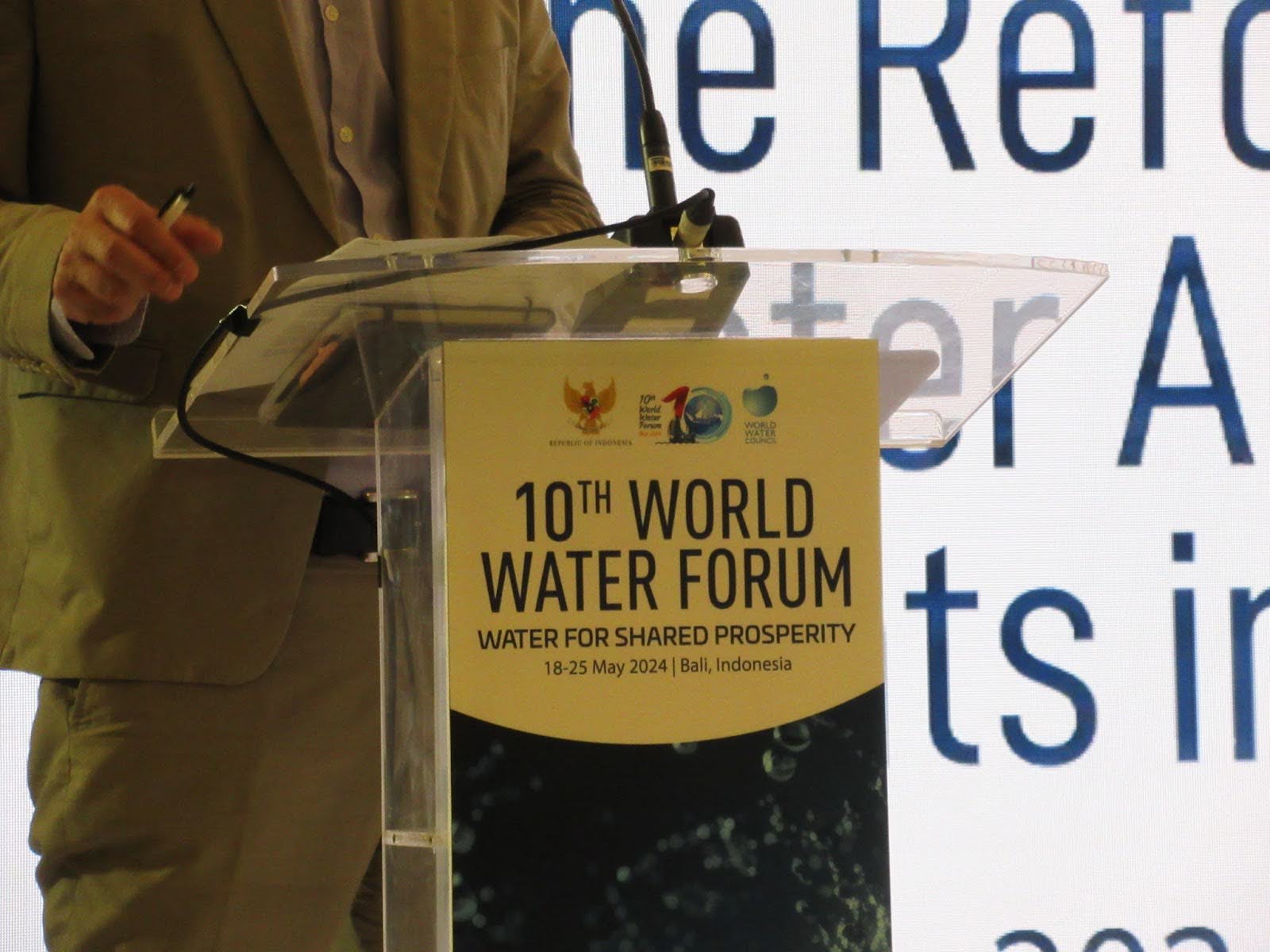The 10th World Water Forum: Sustainable Water Finance and Takeaways


As a current Master of Environmental Studies (MES) student at Penn and a Project Assistant at The Water Center at Penn, I am fortunate to actively explore and deepen my passion for water. Throughout the last several months at The Water Center, I have assisted with the coordination of the U.S. EPA’s WaterTA (Technical Assistance) Program in Region 3, helping small and disadvantaged water systems in Pennsylvania and Delaware to address their unique water-related challenges. Last month, I attended the 10th World Water Forum, the world’s largest water event, in Bali, Indonesia, with fellow MES students. The forum was jointly organized by The World Water Council and the Government of Indonesia who hosted approximately 64,000 participants from 160 countries. Given my background and interests, it was a privilege to be one of those participants and soak in knowledge from diverse countries and sectors around the world.
The conference’s main theme was “Water for Shared Prosperity” and its six sub-themes were water security and prosperity; water for humans and nature; disaster risk reduction and management; governance, cooperation, and hydro-diplomacy; knowledge and innovation; and sustainable water finance. These themes were the focus of learning sessions, roundtable and panel discussions, exposition booths, and casual conversation among attendees. The general objectives for the themes were to share knowledge, experiences, challenges, and strategies on water issues; propose solutions and recommendations; and foster partnerships among sectors and regions.

While I engaged in sessions on desalination, wastewater and fecal sludge reuse, transboundary cooperation, and more, my focus of the week was sustainable water finance - a sub-theme I was eager to increase my knowledge and understanding of. To begin, there is a large financing gap in the water sector, where the required level of investment does not align with the actual level of investment. As stated in a Work Bank Group presentation, an estimated $6.7 trillion is required by 2030 and $22.6 trillion by 2050 to meet water security in water-related infrastructure, illustrating the scale of this challenge. Barriers to investment are not limited to but include a lack of bankable projects and a regulatory framework, high perceived risks (political, operational, currency, etc.) and transaction costs, and undervaluation of water as a resource. Even when funds are available, there can be poor execution and efficiency among governments due to limited capacity, a lack of bankable projects, and more. Although financing challenges vary across regions, the gap is a global issue that must be addressed to achieve water prosperity for all.

While many speakers proposed insightful recommendations to address the financing gap, here is what resonated with me the most. First, governments must prioritize the water sector by increasing their budget allocation, as some governments allocate less than 2% of their budget towards water. They must also leverage their existing funds better to improve efficiency and spending. Second, an improved financial and regulatory framework is essential to enable and increase private investment in the water sector. For example, while blended finance (public-private partnerships, microfinance, guarantees, etc.) is increasingly explored and adopted, it has not been scaled up to its potential due to previously mentioned barriers, such as a lack of a regulatory framework. While the public sector is expected to remain the main source of spending in the water sector, the private sector can provide various benefits, including capital, technologies, expertise, training, and innovation. Furthermore, topics to address within the umbrella of water finance include water affordability, the societal undervaluation of water, infrastructure inefficiencies (non-revenue water leaks), and equitable distribution of resources and investments. To end, one of my favorite quotes from the forum was, “Cheap water has a very high cost.”
Participating in The 10th World Water Forum was an enriching and invaluable experience, especially as a young professional beginning in the water sector. I expanded my knowledge of global water issues and solutions, connected with professionals from diverse backgrounds, and nurtured my passion for learning and water. For example, I had the pleasure to meet Gary White, CEO and Co-founder of Water.org, and learn how their global nonprofit organization has provided water and sanitation services for 66 million people across 4 continents through small, affordable loans. I am excited to research topics presented in sessions, such as brine mining and blended finance, and apply the gained knowledge and experience to my work at The Water Center. As 2 billion still lack access to safe drinking water, all sectors and regions must continue to come together to share knowledge, innovation, and strategies. As a collective, we need to create partnerships, advocate for those who cannot, and ultimately, strive to achieve a more water-equitable world.
- Community Capacity Building & Water Equity
- Water Leadership

